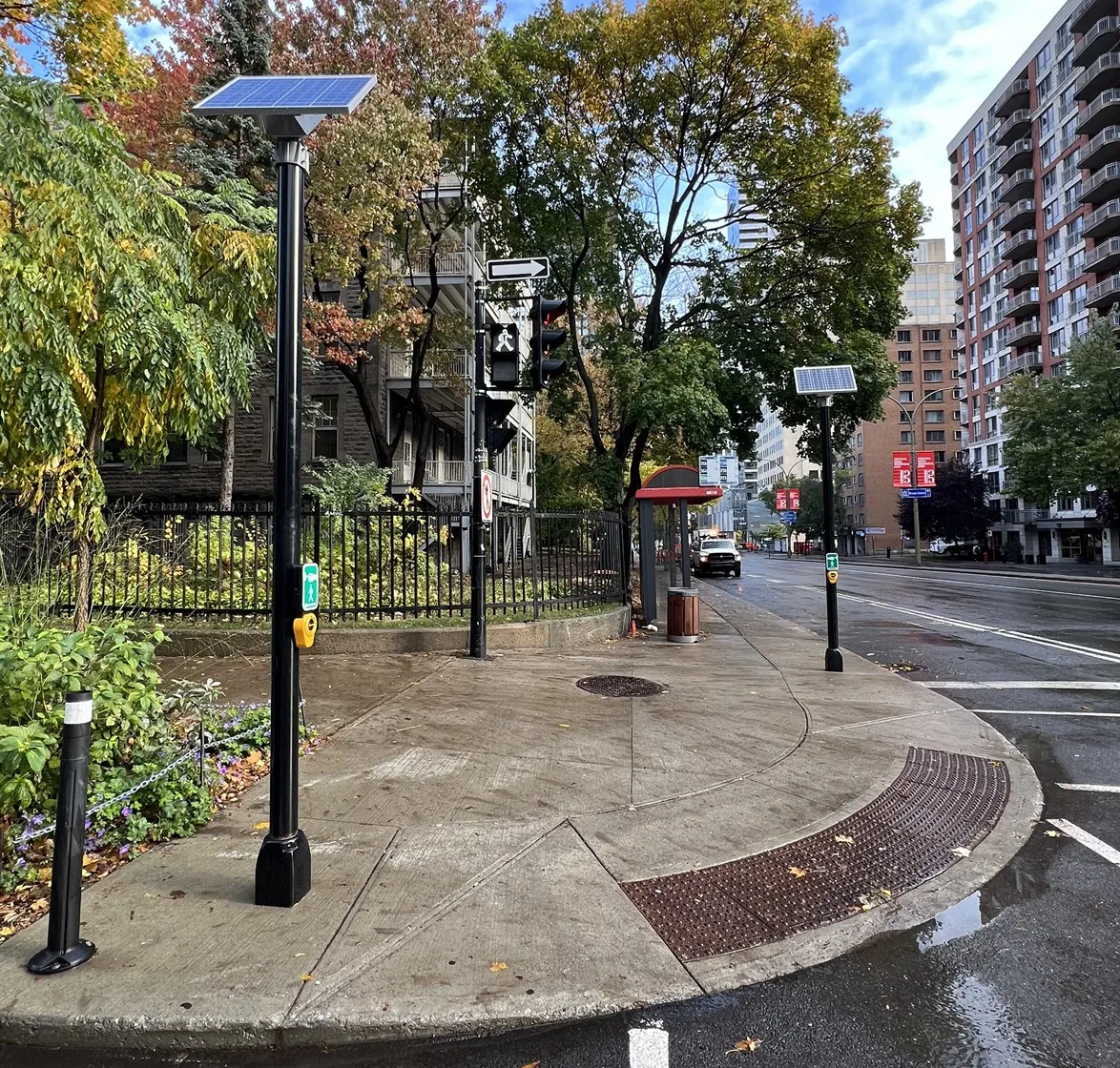
Polara Enterprises has launched the Wireless Ped System (WPS), an innovative solution designed to retrofit accessible pedestrian signals (APS) quickly and efficiently, eliminating the need for trenching, new foundations and wiring.
This makes WPS an ideal choice for cities seeking to upgrade crosswalks to meet federal guidelines like the Americans with Disabilities Act (ADA) and the Public Rights-of-Way Accessibility Guidelines (Prowag) with minimal disruption and cost. The system includes everything needed for installation—a wireless ped controller (WPC), a high-efficiency solar kit, a 10' Frey pole, and hardware. A version without the pole is also available, while the APS buttons are sold separately.
WPS features a surface-mount pole design that simplifies installation. The quick-install pole mounts on bolts set just 5” deep in the sidewalk, avoiding costly and disruptive excavation for foundations.

This enables APS to be placed exactly where they are needed to comply with accessibility guidelines, such as near curb ramps for optimal alignment with crosswalks. Additionally, the use of solar power enhances sustainability, with a solar kit designed for long battery life and reliable performance in various city environments across North America.
One of the standout benefits of WPS is its ability to eliminate the need for trenching and wiring, saving up to $65,000 in installation costs alone.
With a reliable, field-tested wireless connection, WPS ensures 99.99% communication uptime, delivering ‘WALK’ cycles with seamless reliability. The system works at both actuated and pre-timed intersections, thanks to Polara's PRM technology, and setup is easy with the Field Service App, offering a secure encrypted connection in moments.
Beyond cost savings and efficiency, WPS accelerates the process of making intersections safer and more inclusive. Cities can quickly respond to accessibility requests, creating crosswalks that cater to all pedestrians, including those with disabilities, seniors, and children. The system’s minimal installation time—often completed in a single afternoon—means less disruption to traffic and pedestrians, making it ideal for busy urban areas where quick, non-invasive upgrades are essential.
In summary, the WPS empowers cities to meet ADA and Prowag compliance faster and more affordably. By offering a wireless, sustainable, and easy-to-install solution, WPS makes it possible to create safer, pedestrian-friendly environments while reducing costs, minimising disruptions, and improving accessibility for all.
Content produced in association with Polara Enterprises









